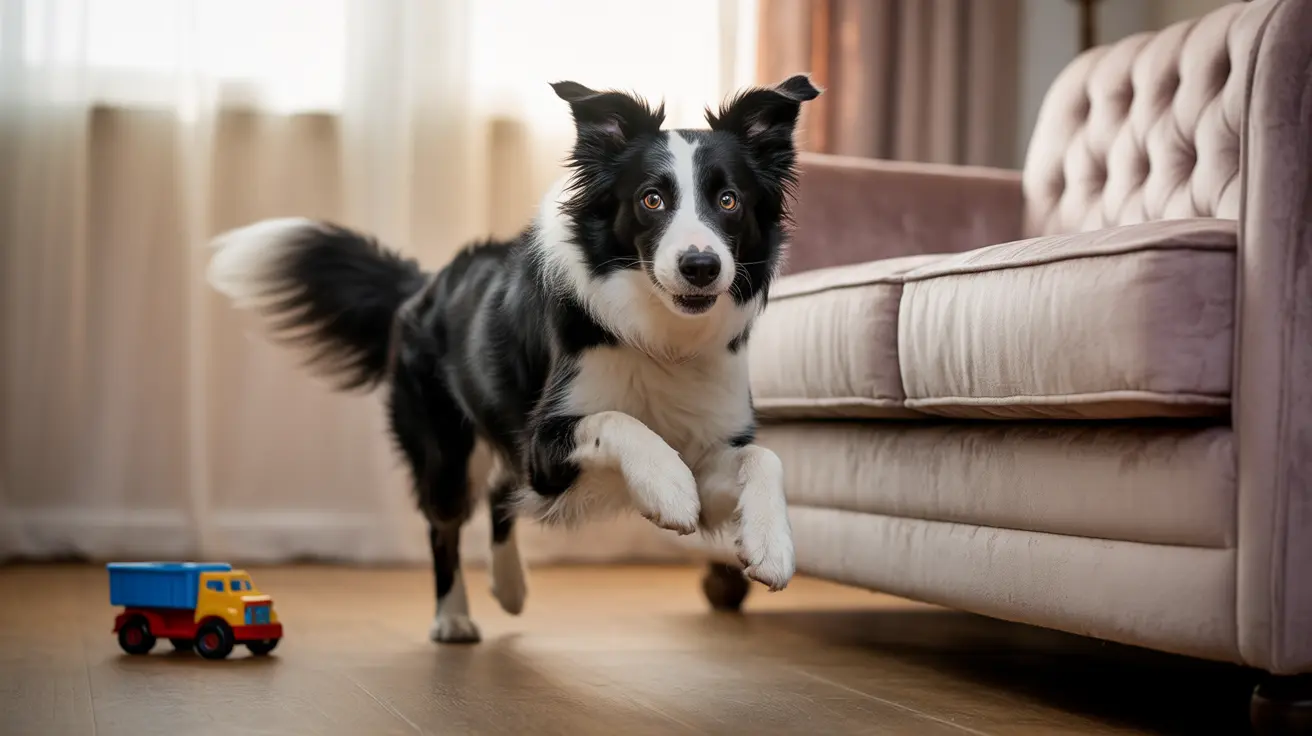Have you ever wondered if your furry friend has a sense of humor? Many pet owners have observed their dogs engaging in what appears to be deliberately funny behavior, from playful pranks to silly antics. Understanding whether dogs find things funny and how they express humor can help us better connect with our four-legged companions.
Recent scientific research suggests that while dogs don't experience humor exactly as humans do, they do possess a sophisticated capacity for playfulness and social joy that closely resembles what we might call a "sense of humor." Let's explore the fascinating world of canine humor and discover what makes our dogs act silly.
What Do Dogs Think Is Funny?
Dogs have their own unique perspective on what constitutes "funny" behavior. Unlike humans, who appreciate complex jokes and wordplay, dogs find joy in simpler, more physical forms of humor.
- Playing "keep away" with toys or household items
- Initiating surprise games of chase
- Performing playful "ambushes" from behind furniture
- Making exaggerated movements during play
- Teasing other pets or family members with play bows
Do Dogs Think Things Are Funny?
While dogs may not conceptualize humor the way humans do, they definitely experience joy and playfulness that manifests in amusing ways. Scientists have observed that dogs often repeat behaviors that elicit positive responses from their human companions.
- Recognize and respond to human emotions
- Understand cause and effect in social interactions
- Learn which behaviors lead to positive outcomes
- Express joy through body language and vocalizations
The Science Behind Canine Humor
Studies have shown that dogs produce a specific vocalization during play called "play-panting," which some researchers consider the canine equivalent of laughter. This sound, combined with relaxed body language and enthusiastic movement, indicates genuine enjoyment.
Dogs also demonstrate their capacity for humor through:
- Social learning and mimicry
- Understanding of timing in play
- Ability to read and respond to human emotional cues
- Development of unique "pranks" or playful routines
How Dogs Express Their Playful Side
Dogs communicate their playful mood through various physical and vocal signals. These may include:
- Play bows (lowering the front end while keeping the rear elevated)
- Relaxed, open-mouth expressions
- Bouncy movements and exaggerated gestures
- Short, sharp barks or playful growls
- Zoomies (sudden bursts of energetic running)
Frequently Asked Questions
Do dogs have a real sense of humor and find things funny, or is it just play?
While dogs don't experience humor exactly like humans do, they do possess a genuine capacity for playfulness and joy that manifests in behavior we might interpret as humor. Their version of "funny" is closely tied to social play and positive interactions.
What kinds of behavior do dogs display that show they're being funny or playful?
Dogs show their playful side through play bows, exaggerated movements, "zoomies," play-panting, and initiating games. They might also steal objects to initiate chase games or perform silly actions that have previously earned positive attention.
Can dogs understand when humans are laughing and do they enjoy making us laugh?
Yes, dogs can recognize human laughter as a positive sound and often respond to it favorably. They may repeat behaviors that make their owners laugh, showing they understand the connection between their actions and our positive response.
How do dogs express laughter or amusement, and is it different from human laughter?
Dogs express joy through play-panting, which is considered their version of laughter. This is different from human laughter but serves a similar social bonding function. They also show amusement through body language and facial expressions.
Are certain dog breeds more prone to having a sense of humor or being funny in everyday life?
Yes, some breeds tend to display more playful or "humorous" behavior than others. Breeds like Labrador Retrievers, Golden Retrievers, and Border Collies are often noted for their playful personalities and tendency to engage in amusing behaviors.






